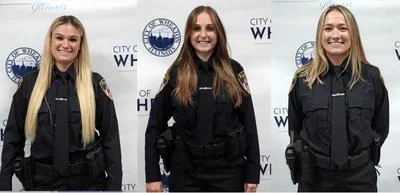Illinois Secretary of State Alexi Giannoulias | Wikimedia Commons / Bart Heird
Illinois Secretary of State Alexi Giannoulias | Wikimedia Commons / Bart Heird
Margot Henshaw, a Burr Ridge business owner, is voicing strong opposition to the state's recent voter registration practices, particularly the decision by Secretary of State Alexi Giannoulias' office to offer voter registration information in multiple languages at Cook County DMV offices.
Henshaw, who has been vocal about her concerns regarding the integrity of Illinois' electoral system, argues that these practices are problematic and set a dangerous precedent.
“There is no reason for the Secretary of State of Illinois to post notices in other languages, nor should we automatically be registering anyone - including citizens to vote when they receive their driver's license,” Henshaw told DuPage Policy Journal. Henshaw's criticisms come amid broader concerns that Illinois' Automatic Voter Registration (AVR) system, which automatically registers individuals to vote when they apply for a driver’s license, could result in non-citizens being mistakenly signed up.
While the Illinois AVR system is intended to streamline the voter registration process, critics argue that it poses a risk of non-citizens—including undocumented residents—unwittingly becoming registered to vote, especially through the "opt-out" process, which some fear may not be adequately communicated to immigrant communities.
“There are many issues with Illinois' embezzled elections,” Henshaw said.
In 2020, Illinois' AVR system mistakenly registered hundreds of non-citizens to vote, raising concerns about election integrity. The error, caused by a programming glitch at driver services, impacted legal non-citizens applying for or renewing driver's licenses, with 16 reportedly voting in the 2018 election. At the time, the Secretary of State’s office addressed the issue by removing the affected individuals from the voter rolls.
Despite this, lawmakers demanded an investigation and accountability, and questions about voter fraud and the system's reliability remain.
Henshaw is particularly troubled by the potential for undocumented individuals to be mistakenly added to the rolls, despite the fact that non-citizens are prohibited from voting in both state and federal elections in Illinois.
She also questioned the underlying philosophy of Illinois' voter registration process, suggesting that the state's methods are out of touch with modern technology and security standards.
“In the 1790s, the technology to identify voters was having them write their name in a ledger book and then write it again when they went to vote, so the signatures could be compared,” Henshaw said. “Voters were only allowed to vote in a relatively small area called a precinct. Presumably other people in the precinct might ostensibly have some idea of who other citizens were—neighbors, relatives, newcomers to the area and whether they were eligible or ineligible to vote.”
Henshaw pointed out that while today’s technology has advanced dramatically with tools like biometric identification, DNA testing, and sophisticated photo recognition, Illinois’ election system still relies on outdated methods that she believes contribute to confusion and error.
“Today we have photos, biometrics, DNA etc with which one's identity may be determined,” she said. “But the State of Illinois eschews these methods and just to muddy the waters further.”
One of the central issues surrounding Illinois’ AVR system is the state's approach to voter registration for immigrants.
Under recent legislation, HB 3882, undocumented residents can obtain standard four-year driver's licenses, which are clearly marked with the phrase "Federal Limits Apply" to indicate that they are ineligible to vote.
However, critics argue that the AVR process still poses risks, as non-citizens may not fully understand the implications of being automatically signed up for voter registration, particularly when the “opt-out” process isn’t clearly communicated.
Earlier this year, concerns were raised about illegal immigrants being automatically registered to vote when applying for state driver’s licenses.
Illinois Senate Bill 496 was introduced to include a "backend" opt-out process in the state’s automatic voter registration system, raising debates over constitutional issues and the potential for non-citizens to unknowingly violate federal law.
“People who don’t speak English often do not understand that they have to 'opt-out.' They are not informed that it is against federal law for non-citizens to register to vote and/or to vote,” Carol Davis, Illinois Conservative Union chairman, told Center Square. “Every time someone touches a federal agency in any way they are getting a voter registration form shoved in their face.”
Earlier this year State Rep. Dan Caulkins (R-Macon) sponsored a bill aimed at penalizing illegal aliens who register to vote or outside entities who register illegal aliens to vote.
"If people are being registered to vote and are not citizens and they end up voting or someone nefariously gets their ballot and votes for the non-citizen, it cancels out [Americans'] votes,” Caulkins told Advantage News.






 Alerts Sign-up
Alerts Sign-up